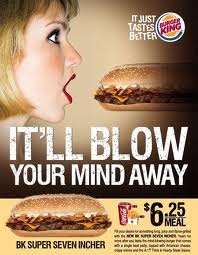127 passengers and crewmembers died in an air
crash near Islamabad, Pakistan, on April 20th. Bhoja Air’s flight
entered a thunderstorm, losing control, only to crash into a wheat field.
Disturbing footage has since been released by journalists, showing smoldering,
dismembered bodies.
The incidents quickly began to splash
across the media; coverage which did nothing but inflict pain. Graphic
photographs, intrusive interviews and even footage from a Hollywood plane crash
were used in the Pakistani media. When will journalists see beyond themselves,
and empathise with severe loss of human life citizens were experiencing? Is
sensitivity too difficult? Where is the code of ethics? It is too often, that
when tragedy strikes, the media seems to loose it’s moral foundations; and
blurs the line between ethical and unethical broadcast.
Just as Potter Stewart, the late US Supreme
Court judge said, “Ethics is
knowing the difference between what you have a right to do and what is right to
do.” When will you make the judgement; to publish, or not to publish?
All questions
of ethicality fall into one of three categories:
Deontology
Deontology stems
from external rules, principles, and duty. Ethics codes are deontologically embedded in
our society. Simply, it tells us what’s wrong an right by a set of written
principles. It is duty-based ethics.
Contrasting consequentialism, deontology is primarily about what people do, and
not the consequences of such actions.
Consequentialism
The Internet Encyclopaedia of
Philosophy gives a plain and simple definition of consequentialism: “Of all the
things a person might do at any given moment, the morally right action is the
one with the best overall actions.” Essentially, consequentialism is results-based ethics. It looks beyond
the quest for ethical behaviour, and stares merely at the outcomes. The general
guidance for the ethical theory of consequentialism is that one should live as
to maximise good consequences.
Virtue Ethics
Virtual ethics is an innate code of
ethics. It stems from no external guidebook, but is simply character-based ethics. It primarily separates rightness and
wrongness via moral obligation, and through a set of characteristics, such those
suggested by Plato; courage, justice, temperance and prudence. These are good
habits of character, and provide moral direction in one’s life.
Australia has a number of ethics
codes, which apply directly to the media.
- MEAA – Media and Entertainment Arts Alliance
- PRIA – Public relations Institute of Australia
- AFA – Advertising Federation of Australia
- AANA – Australian Association of National Advertisers
This is the AFA’s code of ethics.
- Act in the best interest of my clients to extend their financial life and abide by the laws and regulations under which I conduct business.
- Strive to achieve the highest standards of professional competence by maintaining and improving my knowledge and skills.
- Hold in strictest confidence and consider privileged, all business and personal information pertaining to my clients’ affairs.
- Present accurately, honestly and completely, every fact known to me which is essential to my clients’ decision making.
- Use all ethical means to educate my clients about their present and future financial needs.
- To provide an appropriate level of service to my clients and their beneficiaries.
- Maintain high standards of personal and professional conduct to reflect favourably upon the profession of Financial Adviser and serve as an example to others.








No comments:
Post a Comment